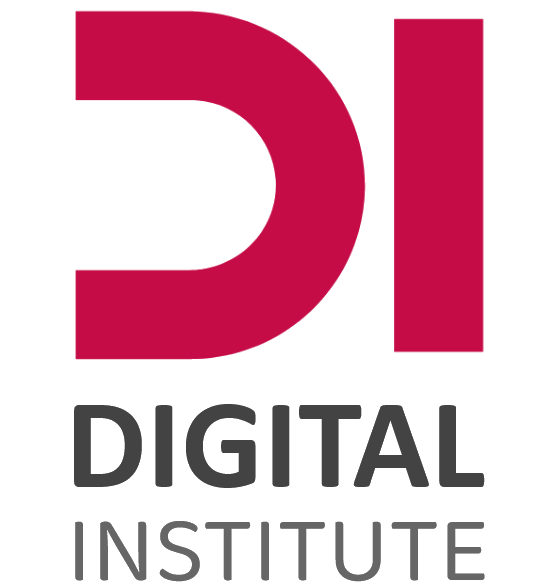Back

The Lab is an integral part of the Digital Institute, serving as the primary hub for conducting research related to the economic implications of digital technologies.

Future of Work
The Digital Economy Lab brings together a group of researchers and experts to examine and develop new ways how digital technologies can transform workm organizations and the economy.The Lab is an integral part of the Digital Institute, serving as the primary hub for conducting research related to the economic implications of digital technologies.
How will digital technology will impact the economy this decade
Digital technologies have already had a significant impact on the digital economy and are expected to continue to shape its future. Here are some of the areas the Lab is working on:Digital Business Models
AI & The Future of Work
Regulation & Compliance
Economic and Social Impact
Impact on Education & Trainning
Impact on Financial Markets
1) Digital Business Models
New digital business models will continue to disrupting traditional industries, such as retail, entertainment, and transportation, by offering new and innovative products and services that are more convenient and efficient and personalized. These business models are challenging traditional economic models by allowing businesses to operate without physical boundaries, disrupting traditional supply chains, and enabling new forms of collaboration and innovation.
2) AI & The Future of Work
AI will facilitate the automation of jobs leading to increased productivity, efficiency, and cost savings for businesses. New job opportunities will arise but it is expected a reduction of jobs (skills gap) while we make the transition to new type of jobs that require different set of skills than the jobs that are being replaced. As the digital economy grows we expect more people to work from home and abandon the tipycal 5 days-per-week job.
3) Regulation & Compliance
Governements will introduce new rules and standards that businesses must follow when operating in the digital space. Areas such as Data Privacy, Cybersecurity, Consumer Protection, Antitrust laws and others will require companies, especially the larger ones to comply or face hefty fines, reputational damage or even loose the ability to operate.
4) Economic and Social Impact
On the economic side Digital technologies will help to increase productivity and eficiency throughout all sectors, helping to creat new business models but at the same time will led to the displacement of certain jobs and the widening of the skills gap. On the social side, these technologies will help to improve communication and access to information but also can create inequality if technology is controlled by a few companies. Social isolation and privacy concerns also constitute problems.
5) Impact on Education & Trainning
The impact of digital technologies will greatly increase in the comming years especially because of Generative AI. Personalized learning will start replacing traditional education, and lifelong learning, soft and digital skills will be more important. Overall access to education will also improve, especially due to the shortenning Digital Divide. AI can also turn education more efficient by analyzing student performance data to identify areas where they need additional support and provide feedback to help students improve.
6) Impact on Financial Markets
Digital technologies will have a greater impact on Financial Markets especially due to AI. Most impact areas are Algorithmic Trading with access to large data quanities and complex predictive models; Risk Management where AI can analyze market data and identify potential risks in real-time and finally Fraud Detection where AI can be used to detect and prevent fraudulent activities in financial markets. Also Blockchain can revolutionize financial markets by enabling secure and transparent transactions without the need for intermediaries.
Overall, virtually all sectors of the economy, and the rate of adoption will create many inequalities since different regions and countries will adopt each technology at its own pace. Checkout what are the main sectors impacted below.
Sectors most impacted by AI in this decade
Healthcare
AI can improve disease detection, diagnosis, treatment planning, and patient monitoring. It can also help reduce medical errors, optimize resource utilization, and lower healthcare costs.
Financial Services
AI can automate repetitive tasks, detect fraud and cybercrime, personalize financial services, and provide data-driven investment recommendations.
Education
AI can personalize learning experiences, provide individualized feedback, and enhance student performance analysis.
Manufacturing
AI can optimize production processes, reduce downtime, and enhance quality control.
Retail and e-commerce
AI can improve personalized product recommendations, optimize pricing and inventory management, and enhance the customer experience through chatbots and virtual assistants.
Transportation
AI can optimize logistics, route planning, and maintenance schedules for vehicles, as well as enable autonomous driving.
Agriculture
AI can optimize crop management, reduce waste, and enhance crop yields through precision farming techniques. AI-powered robots can automate tasks such as planting, harvesting, and sorting crops, reducing labor costs and improving efficiency. AI can help farming become more sustainable by analyzing environmental data, reducing waste and optimizing resource usage.
Science & Research
AI can automate time consuming tasks, analyze complex data sets, and discovering new patterns and insights. Ai can solo discover new drugs and help build more accurate models of complex systems, such as the human brain or climate systems.
Entertainment
AI can create personalized recommendations for movies, TV shows, music, and games. It also can enhance user experience, help with content creation and providing better insights into audience preferences.
Consulting Services
AI can improve the efficiency and accuracy of consulting services, providing better insights into data, and automating repetitive tasks. AI can also hep inform with strategic decision-making by analyzing data and identifying patterns. AI can also automate customer support by enabling chatbots to interact with customers.
Digital Academy
8 min 
Strategy
Guide
Digital, Product or Service: Pros & Cons
6 min 
Strategy
Guide
How to build a successful digital business model?

6 min 
Strategy
Super Guide
Ideation Tools & Techniques
40 min 
Strategy
Super Guide
How to Create a Business Model
40 min 
Strategy
Super Guide
How to Create a Business Plan
19 min 
Marketing
Super Guide
Build an Online Business: The Complete Guide
8 min 
Marketing
Super Guide
How to Write a Company Presentation
8 min 
Strategy
Super Guide
Metrics to Measure Product-Market Fit
8 min 
Strategy
Super Guide
How to Develop a Digital Product or Service
8 min 
Strategy
Super Guide
How to Validate a Digital Product or Service

8 min 
Digital
Super Guide
How to Monitor Site Health

8 min 
Digital
Super Guide
How to Analyze Statistics of your Site

8 min 
Digital
Super Guide
Conversion Rate Optimization
8 min 
Digital
Super Guide
How to Create a Landing Page
4 min 
Marketing
Guide
How Videos Can Capture Attention and Boost Sales
40 min 
Marketing
Super Guide
How to Create a Podcast Marketing Strategy
40 min 
Strategy
Super Guide
How to build your Customer Persona
30 min 
Marketing
Super Guide
How to Create a Social Marketing Strategy
6 min 
Networking
Guide
How to Pitch - A Guide for Entrepreneurs
8 min 
Networking
Guide
How to Network Online

8 min 
Networking
Super Guide
How to Follow-up someone you Met

8 min 
Networking
Super Guide
How to Manage you Contacts and Opportunities

8 min 
Networking
Super Guide
Learn How to Speak in Public
8 min 
Digital
Super Guide
How to Write a Personal Presentation

8 min 
Strategy
Super Guide
How to Create a Presentation for a Product or Service

8 min 
Strategy
Super Guide
How to Write a Sales Proposal Template
4 min 
Strategy
Article
Why does your startup needs to be global?
3 min 
Strategy
Article
Strategy Execution Gap: 7 Simple Steps to Overcome it
6 min 
Strategy
Article
Digital Academy Program
10 min 
Strategy
Article
Journalism, Media and Technology: Trends and Predictions for 2024
3 min 
Marketing
Article
Building customer communities for effective marketing campaigns
3 min 
Marketing
Article
How to Build Social Media Presence
5 min 
Marketing
Article
Social Media Marketing: 3 Pillars to Build a Solid Social Presence
3 min 
Marketing
Article
6 Marketing Challenges for your Company
3 min 
Networking
Article
4 Immutable Rules of Business Networking
6 min 
Networking
Article
Seven Golden Tips for Good Networking
6 min 
Networking
Article
Three things to keep in mind when networking
6 min 
Networking
Article
Write a Personal Presentation

Strategy
Lesson

Strategy
Lesson

Strategy
Lesson

Strategy
Lesson
Achievements
Email Management
Task Management
Data Backup
Computer Tools
We are compiling more information. Our apologies.
Market Research
Recruiting
Finantial Management
MVP
We are compiling more information. Our apologies.
Online Networking
Event Networking
Trade Show Networking
Student Networking
We are compiling more information. Our apologies.
Social Profiles
Website Building
Content Writing
SEO
We are compiling more information. Our apologies.
Email Marketing
Web Analytics
Video Marketing
Podcast Marketing
We are compiling more information. Our apologies.
Active Listening
Presentation
Nonverbal Communication
Confidence
We are compiling more information. Our apologies.
Data Visualization
Databases
Artificial Intelligence
Data Tools
We are compiling more information. Our apologies.
No Information for this section yet. Our apologies.







